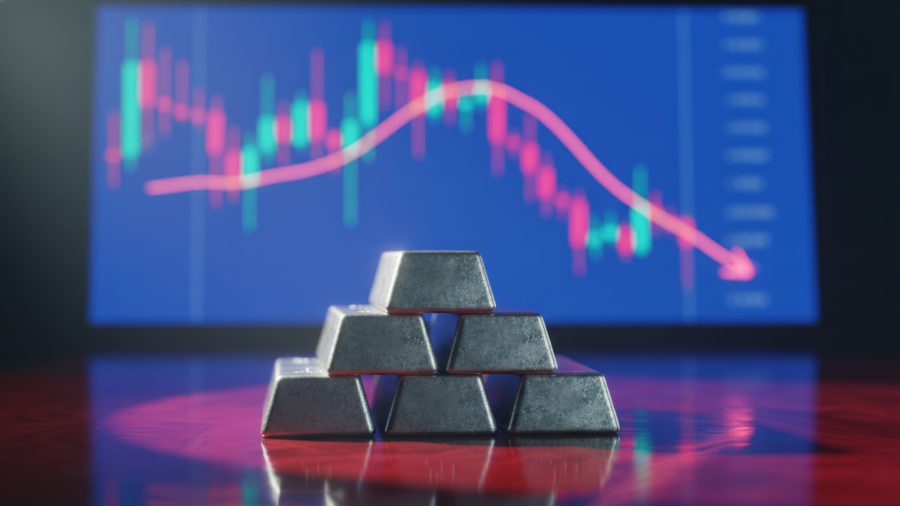Access to geopolitically-friendly critical elements supply chain vital for EV makers

In a critical elements’ version of musical chairs, automakers are rushing to align with energy metal miners before the ‘music’ stops. Volatile pricing and limited domestic supply demand EV makers’ access to high-grade lithium and other energy metals including copper, nickel and cobalt.
The tempo of the musical chairs intensified with Lithium America’s announcement of a $650M investment from General Motors to fund the company’s full permitted claystone lithium deposit at Thacker Pass in Nevada.
How far will EV automakers go to secure vertical integration? In October 2022, it was widely reported that Tesla considered taking a stake in mining Goliath, Glencore. “Glencore, (which has invested heavily in lithium recycling), does not own lithium mines but produces copper, nickel and cobalt – ‘commodities of the future’ – needed to manufacture batteries, electric cars and renewable infrastructure that will help the world transition to a greener economy,” reports Reuters.
While Tesla has not, to-date, taken a stake in Glencore, they have signed off-take agreements with lithium and nickel miners which give the company critical elements at a controlled price. The commodity value chain also places a premium on domestic lithium refining with Tesla investing in a Texas facility which will produce battery-grade lithium hydroxide, what’s used in high-performance lithium-ion batteries for EV’s.
Automakers want to focus on what they do best – build best-in-class EV vehicles – delivered on time and within budget. EV makers cannot project costs with wildly fluctuating energy commodity prices.
This week, Albemarle announced a $1.3 billion infusion in a ‘Mega-Flex’ lithium processing facility in South Carolina to “process diverse lithium feedstock, including lithium from recycled batteries. Albemarle expects the facility to annually produce approximately 50,000 metric tons of battery-grade lithium hydroxide from multiple sources, with the potential to expand up to 100,000 metric tons.”
Processing plants that produce battery-grade energy metals are rare in North America with China controlling most of the battery supply chain including the processing of all key minerals including lithium, cobalt and nickel, as well as the batteries themselves.
“We have to outcompete China and in the world, and make these technologies here in the United States—not have to import them,” said US President Joe Biden while promoting the Inflation Reduction Act (IRA) with the US government pledging about $370 billion for climate, clean energy, and environmental justice projects, including domestic lithium mining and refining.
“As the automaker world transitions toward zero carbon emissions, the biggest obstacle is access to domestic battery supply chains,” said Jim Farley, Ford’s CEO, and that ‘both lithium and nickel are the key constraining commodities. We want to localize these commodities in North America….not just the mining but the processing of the materials.”
Farley revealed that raw metals mined in the U.S. often get sent back to China to be processed, something the U.S. is actively trying to counter through grants and additional investments.”
While the American EV industry currently imports virtually all of its lithium, the passage of the historic Inflation Reduction Act is expected to address this shortcoming by boosting lithium mining in the U.S.
Jack Lifton, Co-founder and Chairman, Critical Minerals Institute’s (CMI), believes the automotive industry has failed to accept the problem of an adequate domestic lithium supply chain. “If it is not even possible to buy enough lithium to make enough batteries in the United States for half of our population; what about the rest of the non-Chinese world?”
We should not expect the US to bench-lift energy metal mining and processing to meet EV makers’ goals. The processing of lithium, nickel and copper into battery-grade chemicals that can be transformed into lithium-ion batteries used to power electric vehicles and to store wind and solar energy, should be controlled by regions of the world that are part of the Minerals Security Partnership (MSP).
Established in June 2022, MSP’s primary objective is to secure supplies of critical minerals, including lithium, outside of China. MSP partners include Canada, Australia, Finland, France, Germany, Japan, the Republic of Korea, Sweden the United Kingdom, the United States and the European Commission.
The Canadian government ordered Chinese companies to divest their holdings in mining companies developing lithium deposits along with a tougher policy on investment in the minerals sector by state-owned entities, particularly those from China, which dominates the processing of key energy transition metals including lithium, cobalt and rare earths.
In September 2022, European Commission president Ursula von der Leyen announced the European Critical Raw Materials Act for lithium and rare earth metals. “We will identify strategic projects all along the supply chain, from extraction to refining, from processing to recycling,” she remarked at the annual State of the Union address.
With the global pressure now simmering to a boil, our collective future is dependent on having many more processing plants established in MSP regions. China has not missed a step in continuing to invest in energy metal mines, processing and battery production around the world. They play commodity price bubbles to their advantage to source new raw materials while they preserve and enhance their domestic supply.
As Canada, the United States and other countries look to disentangle their clean energy supply chains from China, there is an urgency to secure supply in geopolitically safe lithium-rich countries. The health of our planet is at stake and the time is now to establish secure, independent supplies of energy metals processed by geopolitically safe countries.
Simon Clarke is CEO of American Lithium Corp.
More News
{{ commodity.name }}
{{ post.title }}
{{ post.date }}




Comments